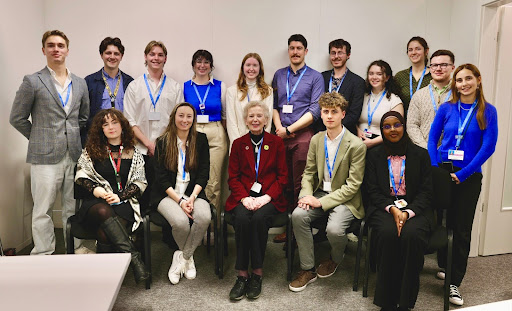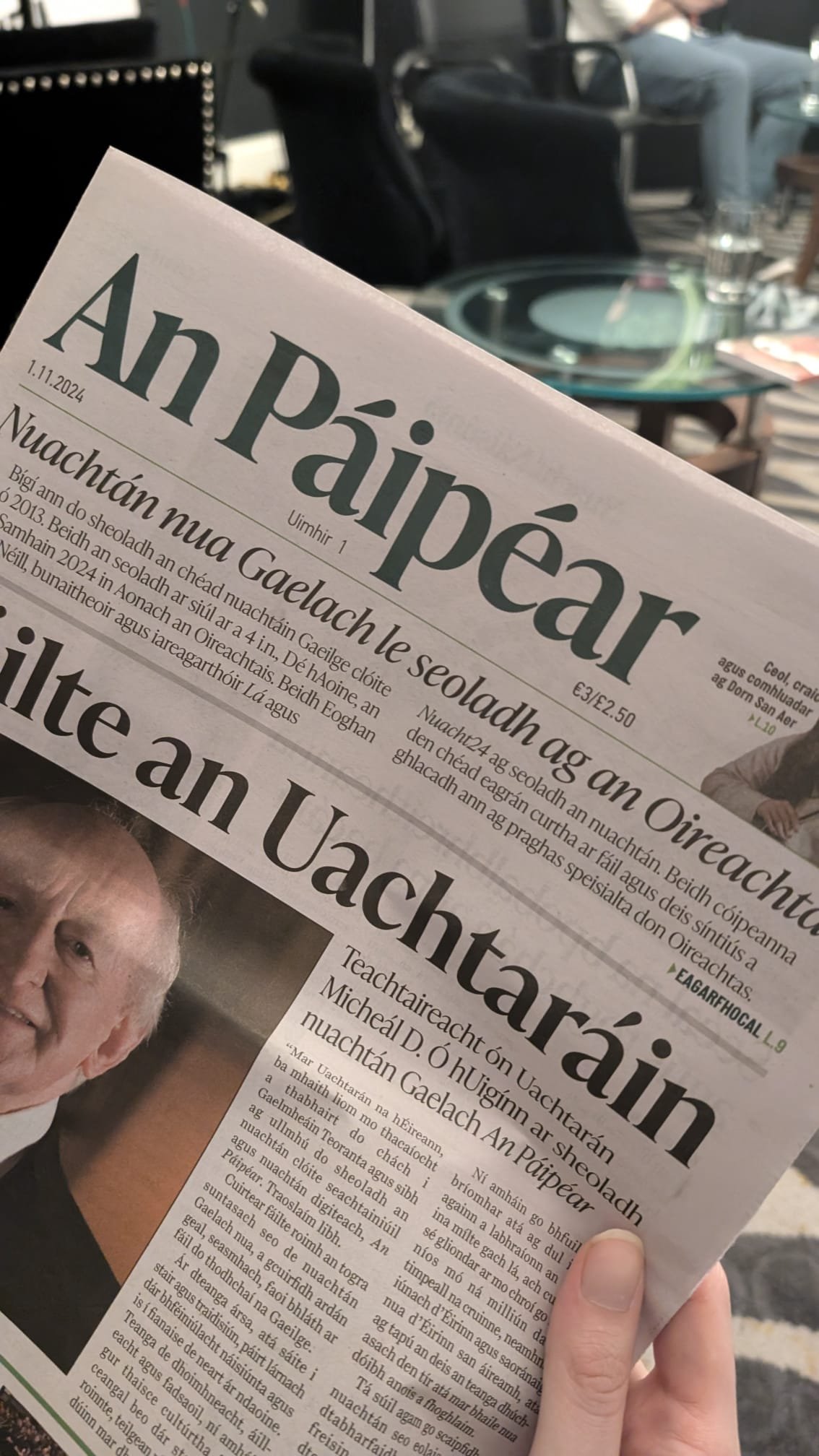
(*Click to read*) The letter, dated 18th November 2011, sent by the current and previous Heads of the School of Social Policy and Social Work to College's Human Resources Department about the redundancies.
Rónán Burtenshaw
Deputy Editor
The ‘contract of indefinite duration’ (CID) dispute between IFUT and College has important ramifications for job security in Trinity and the public sector and the Croke Park Agreement. But it also raises other questions – some concrete and some more abstract – which we have been unable to answer definitively in researching the story. Staff need to know what’s going on and are trying to find answers. What could happen to their jobs? Do they need to think about a settlement agreement? What is a settlement agreement? Although not all the necessary information is available, some answers have been found. Here are some of the most important.
Are ‘contracts of indefinite duration’ (CIDs) permanent?
This is the pertinent question of the dispute between IFUT and College. IFUT would point to previous Labour Court rulings that afforded the status of permanency to the contracts and to government agencies in the area of employment using the term “permanent” to describe CIDs.
College’s position on this is more interesting. On November 18th, 2011 Dr. Eoin O’Sullivan and Prof. Robbie Gilligan, the current and previous Head of School for Social Work and Social Policy sent a letter to Human Resources. The letter was also circulated to staff members in the school. It states “for many years the College position, as relayed to us by the Human Resources office, in relation to Contracts of Indefinite Duration (CIDs) was that such staff had the same status as tenured or cista staff and assurances were given by us to staff on the basis of this advice.” It continues “this position has clearly changed but this was not communicated to Heads of School in any formal manner and we are concerned how this change of position emerged, and the consequences for staff across the university.”
Recently-elected Provost, Patrick Prendergast’s, position during the election campaign was in line with the previously referenced College policy above – that CIDs were permanent contracts. So, has the college’s position on CIDs changed? Has the Provost’s? And, if so, when, why and what is the new position?
Dr. O’Sullivan and Prof. Gilligan’s letter continues to criticize Human Resources for “simply going through the motions” and characterize the process leading up to redundancy as “misjudged”. It also describes the redundancy payments offered in this case as “miserly”. Above all, this can make the possibility of recovering from redundancy seem like a daunting and overwhelming prospect.
College’s decision not to respond to question by The University Times for reasons of staff confidentiality and ongoing Labour Court proceedings makes it difficult to confirm what their arguments are. But correspondence on the matter we have seen indicates two possibilities: either CIDs are permanent but college is arguing that they can still make staff redundant if the stream of funding their job depends on dries up or CIDs are not permanent, they are somewhere between permanent and temporary contracts.
If College succeeds in arguing the second point either in the Labour Court or in a higher court at a later date then it has important ramifications for the status of people on CIDs across the public service (and, potentially, beyond).
If they don’t take this approach then there are some questions to be asked in the university: can all permanent staff now be made redundant? If not, who can? Over 1,100 of the staff College acknowledges as its 2,860 full-time staff are funded by “non-core funding”. Are these subject to compulsory redundancy? The answers to these questions will resonate across Irish universities and the public sector at large.

Brendan Howlin, Minister for Public Expenditure and Reform, after Croke Park Agreement talks in June. (Image: Photocall Ireland).
Were the redundancies in breach of the Croke Park Agreement?
This depends on whether CIDs are seen as permanent. Most public-sector unions will have entered into the deal under the understanding that they were – particularly based on government agencies’ stances and Labour Court rulings.
The Croke Park Agreement is not legally binding, and its process has involved different separate agreements. IFUT, for instance, did not sign up to the deal until bilateral negotiations with the Department satisfied them that the deal protected their members. It may not be easy to find a yes or no answer to this question. But in a bilateral agreement interpretation is often the important determinant. IFUT clearly believes that the redundancies were in breach. In an article in The Irish Times on Monday, they accused College of breaking the agreement in “spectacular fashion”. And there are strong indications that ICTU agrees. That is enough to threaten the Agreement.
“Supported by” or “conditional on”?
A point of contention likely to be resolved in the Labour Court relates to the wording of the employees’ contracts. The documents say that the positions are “supported” by a specific stream of “non-core funding”. The letters of dismissal issued by the college to the staff members said that the positions were conditional upon this funding. The two sides in the dispute will likely debate the meaning of these terms.
What is core-funding?
There might be a definitive answer to this question – which we asked College – but none has been forthcoming.
In the past core-funding has referred to the funding provided by the students enrolled in the college – although how this has been allocated within the college has varied. Is there an established process for how this funding is allocated? This is now a very important question. If CID staff funded by “non-core funding” are vulnerable to redundancy, is there a mechanism in place to make sure that funding cannot be reallocated to target a specific CID staff member?
College used the term “external” to describe funding tied to the contracts of the staff made redundant. What was the external funding? If it was private funding there are discussions determining a staff member’s position entirely on a private, external funding stream and whether this will further deepen the ties between academic research and profitability.
There are questions here for the unions, too. Will public-sector unions consider “external” funding derived from the public purse different, in terms of application to the Croke Park Agreement, than that derived from private funds? Will they seek to initiate a more comprehensive and broad-ranging discussion on the growing market influence in Ireland’s public university system?
What is the status of tenure?
The debate around the nature of tenure is ongoing. The Irish Universities Association – comprised of university Presidents – want to define tenure in line with currently existing employment legislation. The term ‘tenure’, they argue, dates from an era before job security was codified by this legislation and shouldn’t be seen as something with greater significance than job permanency. Its use now is basically to be related to membership of a permanent academic club.
Lecturers’ unions and labor academics tend to tie tenure to academic freedom and argue that it has far greater significance. The well-established argument for tenure being more than simply a permanent job is that academia is in a position where they need to work free from the threat of redundancy or sacking is especially important. The free pursuit of knowledge and information, the argument goes, could easily bring an academic into conflict with his or her superiors and they need to be protected from this by very solid job security. What is often pejoratively described as a ‘job for life’ is a way of ensuring academic freedom. And, following this logic, the recent redundancies threaten a wider principle of academic freedom by casualizing academic labor and reducing job security for academics.
The issue of tenure has yet to be definitively resolved by Irish courts. This dispute, however, could have important ramifications for the debate. College may seek to make a distinction between permanent contracts (definite and indefinite duration) or to define CIDs as a form of hybrid between temporary and permanent jobs within the university. If it successfully does so not only will a formal division be introduced between staff in permanent positions but those with permanent contracts that are not subject to involuntary redundancy will have a form of tenure while those on the other permanent contracts will not. It will no longer be possible to argue that tenure – if it exists at all – is simply membership of a permanent academic club. The debate on this issue will be forced into realignment.
What is the status of the Croke Park Agreement?
The Croke Park Public Service Agreement has been controversial since its inception. Those on the Right of Irish politics say it makes it impossible to cut wasteful spending in a bloated public service. Those on the Left say it formalizes acceptance of austerity on behalf of unions and accepts that the public service is punished for a crisis that they did not cause. But, for those divorced from the ideological debate or looking for moderate or practical solutions that prevent further instability, its offer of relative industrial peace with reform and cuts is valuable.
On Sunday a group of seven Fine Gael TDs told the Sunday Independent that the deal should be scrapped altogether. This follows days of speculation that FG rebels have been putting pressure on Enda Kenny to scrap the deal and take on a more confrontational stance with public sector workers and their unions. However later that day Brian Hayes, Minister of State at the Department of Finance and one of the more Right-leaning Fine Gael front-liners, echoed his government colleague Brendan Howlin in dismissing as “nonsensical” calls for the deal to be annulled. (Hayes had previously said the deal needed to be implemented with greater “urgency”.)Both men said that, as long as the targets were being met, the deal was working and should be maintained.
The Croke Park Agreement has, thus far, survived because it is part of a culture of consensus that has been highly influential in Irish politics since the Celtic Tiger period. It follows in the tradition of the corporatist ‘social partnership’ agreements between the economy’s big players – government, unions (ICTU) and business leaders (IBEC) – and fits with the narrative that “we’re all in this together”. It remains to be seen how long this culture can continue as Europe faces down a prolonged period of economic stagnation and political turmoil.
This dispute in Trinity is of great importance for the future of the deal, as much for the reaction of the parties involved to the Labour Court decision which will follow as the decision itself. Public sector unions entered into the agreement to protect permanent jobs in the public service. Many of the staff they represent in the public service are on CIDs (another important question which may be answered soon: how many?). If CIDs are permanent contracts and staff on them can be made involuntarily redundant then it will make the position of public sector unions within the Croke Park Agreement process increasingly untenable.
But the Agreement would also be put in jeopardy by any decision which recognizes CIDs as permanent – and which the government enforces by committing college not to make staff on them involuntarily redundant. If College has to retain CID staff even when the stream of funding which had paid for their contract dries up it will place on the significant financial pressures – pressures which would also apply to other organizations in similar positions. There is a proportional relationship here: as the conflicting interests involved become more defined the resolution of the conflict in the consensus framework will become increasingly difficult.

Could IFUT go on strike?
Attempts will be made to resolve this dispute in the Labour Court in March. There’s also a chance of intervention from the Department of Education. It’s likely that significant efforts will be made to prevent IFUT from going on strike.
But, at the moment, IFUT has stalled their engagement with a process designed to stop industrial action. How this dispute is resolved is important for the job security of staff members in many universities on CIDs. If this pattern of compulsory redundancies for CID staff continues there’s a strong chance.
Is there a larger process at play here?
Lecturers’ unions have argued for some time that there is a process of casualization of academic labor, tied to the neoliberalisation of higher-level education, underway at the moment.
Certainly, these redundancies and the wider consequences for job security in the university could be contextualized by other events. Last year a University Times investigation revealed a practice, sanctioned by college, where senior academics bought out extensive (or entire) teaching portions of their contracts with external research funding.
The investigation produced evidence of specific instances where Professors and other senior academics were replaced by contract lecturers who were not in possession of a PhD. In the course of researching the story, the paper spoke to some of those hired as contract lecturers to do replacement teaching and averaged the cost they were being paid per module to around €3,000. This contrasts with the yearly salaries of the Professors (€108 – 138k), Associate Professors (€79 – 105k) or Senior Lecturers (€70 – 89k) who they could be asked to replace.
Academic contracts in Trinity College are not specifically broken down by task. However, a national division of tasks was articulated by Ned Costello, CEO of the Irish Universities’ Association, at a September 23rd, 2010, meeting of the Oireachtas Public Accounts Committee. He quoted the division of forty percent teaching, forty percent research, and twenty percent administration.
Unions that represent academics have strongly resisted a formalized breakdown of tasks in a workload model, but it provides a certain basis for comparison. If we accept that the €3,000 per module model includes some administration, the lowest-paid professor would have to teach eighteen modules a year to earn his or her salary, and this would be before any research.
The current dispute ties in with questions about the casualisation of labor, the relative importance of teaching and research, and the nature of college funding. It also fits with a broader discussion of how college adapts to a neoliberal political and austere economic climate.
Further questions
There are plenty of other questions posed by the dispute too: have any non-union members on CIDs been made involuntarily redundant? What is the Department of Education’s position? Are there internal differences within the Department – as could be inferred from the letters of support Mike Jennings says were received from within the Department by the staff who had been made redundant? Perhaps the most interesting, and the one that could see this story prolonged longest is this: Could we see the issues brought up by this case end up before the High Court?







